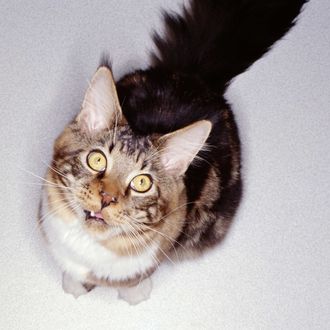
Maybe you’ve had or heard about a pet cat on Prozac, or a dog that doesn’t quite seem like itself in the weeks following the death of another animal in the home. On the one hand, it’s hard not to question whether there is some owner-projection or anthropomorphism happening here. But on the other, as the BBC reports, some scientists are starting to seriously investigate the inner lives of animals, including potential signs of mental illness.
Some researchers have argued that there are observable behaviors in animals that look a lot like the behaviors in humans with certain mental illnesses: There are pet birds that pluck out their own feathers, dogs that won’t quit licking their tails or paws, and bonobos that pull out their own hair. Some military dogs that have been in combat may even show signs of PTSD, such as a dramatic change in temperament.
But even more recently, some scientists have started to investigate the idea on a genetic level, and their results suggest that in some animals, much like in humans, the effects of isolation can be serious. Writer Shreya Dasgupta explains:
In 2014, researchers found that African grey parrots that were housed alone suffered more genetic damage than parrots that were housed in pairs. The researchers examined the parrots’ telomeres: caps on the ends of their chromosomes that slowly deteriorate with age or stress. 9-year-old parrots that were raised alone had telomeres as short as pair-housed birds that were 23 years older.
The scientists interviewed in the BBC piece acknowledged that much more research needs to be done in this area before anything can be said definitively about the ways animals may or may not experience mental health. But for anyone who’s ever loved an animal, it’s going to be fascinating to watch.




